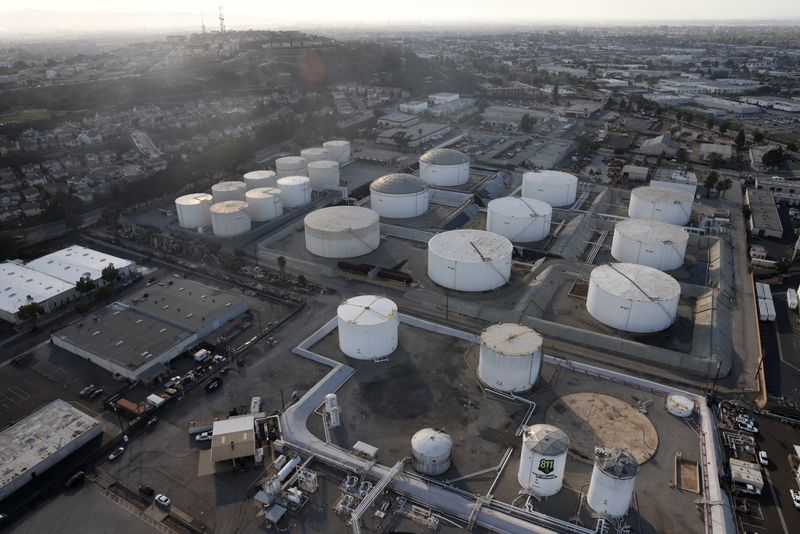By Laura Sanicola
(Reuters) - Oil settled higher on Monday on hopes of further demand recovery in 2022, despite OPEC+ looking set to agree to another output increase and persistent concerns about how rising COVID infections might affect demand.
OPEC and its allies, or OPEC+, are expected on Tuesday to agree to the output hike.
The Omicron coronavirus variant has brought record case counts and dampened New Year festivities worldwide, with more than 4,000 flights cancelled on Sunday.
"The monthly OPEC + meeting that will be developing during the next couple of days is more likely to prove bullish than bearish since several of the OPEC members are having difficulty achieving assigned quotas," said Jim Ritterbusch, president of Ritterbusch and Associates in Galena, Illinois.
Brent crude settled up $1.20, or 1.5%, at $78.98 a barrel at 12 p.m. EST (1700 GMT), having earlier risen as high as $79.05. U.S. West Texas Intermediate (WTI) crude settled up 87 cents at $76.08 a barrel.
"Infection rates are on the rise globally, restrictions are being introduced in several countries, the air travel sector, amongst others, is suffering, yet investors' optimism is tangible," said Tamas Varga of oil broker PVM.
Many U.S. schools that would normally welcome students back to classrooms on Monday are delaying their start dates, scrambling to test pupils and teachers and preparing, as a last resort, to return to remote learning as record numbers of COVID-19 cases from the Omicron variant sweep the country.
Oil gained some support from an outage in Libya. Oil output will be cut by 200,000 barrels per day for a week due to pipeline maintenance.
Last year, Brent rose 50%, spurred by the global recovery from the COVID-19 pandemic and OPEC+ supply cuts, even as infections reached record highs worldwide.

Some see more gains in 2022.
"Crude and oil product prices should benefit from oil demand moving above 2019 levels," said a report from UBS analysts including Giovanni Staunovo. "We expect Brent to rise into a $80–90 range in 2022."